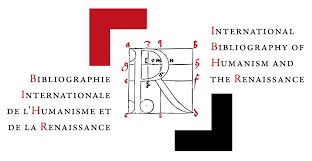Slovak Existential Adverbs zavše, chvíľami, z času na čas on the Background of German (According to the Parallel Corpus)
DOI:
https://doi.org/10.31168/2073-5731.2024.3-4.06Keywords:
Semantics, temporal adverbs, parallel corpus, Slovak language, German languageAbstract
The article analyzes the Slovak temporal adverbs zavše, chvíľami and z času na čas, belonging to a group with a common meaning “sometimes”, when a repetition of a certain situation is assumed, while the number of repetitions does not seem large to the speaker. These adverbs belong to the “near periphery” of the group, they are considered in a contrastive and comparative way, against the background of the German language, which has a long history of language contacts with the Slovak language. The analysis was carried out on the basis of the Slovak-German parallel corpus, which is part of the Slovak National Corpus. Due to the fact that translations from German into Slovak are mainly represented in this subcorpus, only German incentives of Slovak dialects are involved, and not vice versa; parallel translations from a third language are not involved. It is shown that for zavše the most frequent equivalent is manchmal, as well as bisweilen / zuweilen. For the adverb z času na čas, the main German equivalents are the adverbs of the und-group; as well as Von zeit zu zeit. Manchmal appears less often as an incentive – when the situation involves a clear fixation or can be potentially specified, also if its regularity is a consequence of some other situation. The largest number of equivalents, approximately comparable in number of occurrences, includes the Slovak adverb chvíľami, which can be the translation equivalent of lexemes manchmal, bisweilen / zuweilen, von zeit zu zeit, adverbs of und-group, also adverbs zeitweilig, zeitweise, zuzeiten, kurzzeitig, zwischenzeitlich, bald, and prepositional constructions with nouns Weile and Augenblick. The contexts of the appearance of chvíľami in translation are similar: this is a situation of direct observation in the narrative mode in the past; as well as a situation of “fuzzy judgment”, when it is difficult for the speaker to uniquely characterize the situation. All this allows us to speak about a certain ethnospecificity of the Slovak chvíľami.
Received: 22.04.2024.
Revised: 09.08.2024.
Accepted: 24.09.2024.
Citation
Vashchenko D. Yu. Slovak Existential Adverbs zavše, chvíľami, z času na čas on the Background of German (According to the Parallel Corpus) // Slavic Almanach. 2024. No 3–4. P. 132–159. DOI: 10.31168/2073-5731.2024.3-4.06






